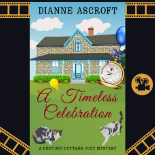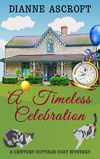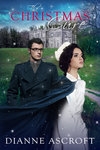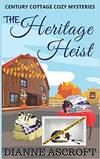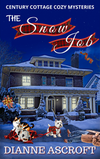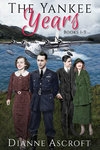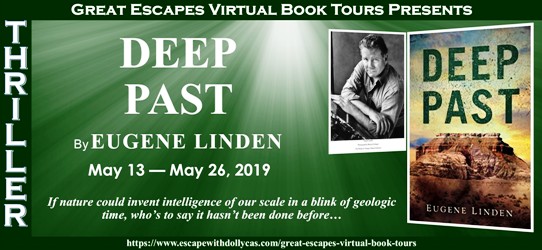
Today I’m hosting a stop for Eugene Linden on his Great Escapes blog tour. Eugene is the author of the mystery, Deep Past. Let’s start with a brief description of the book from the author:
“If nature could invent intelligence of our scale in a blink of geologic time, who’s to say it hasn’t been done before…
A routine dig in Kazakhstan takes a radical turn for thirty-two-year-old anthropologist Claire Knowland when a stranger turns up at the site with a bizarre find from a remote section of the desolate Kazakh Steppe. Her initial skepticism of this mysterious discovery gives way to a realization that the find will shake the very foundations of our understanding of evolution and intelligence.
Corrupt politics of Kazakhstan force Claire to take reckless chances with the discovery. Among the allies she gathers in her fight to save herself and bring the discovery to light is Sergei Anachev, a brilliant but enigmatic Russian geologist who becomes her unlikely protector even as he deals with his own unknown crisis.
Ultimately, Claire finds herself fighting not just for the discovery and her academic reputation, but for her very life as great power conflict engulfs the unstable region and an unscrupulous oligarch attempts to take advantage of the chaos.
Drawing on Eugene Linden’s celebrated non-fiction investigations into what makes humans different from other species, this international thriller mixes fact and the fantastical, the realities of academic politics, and high stakes geopolitics—engaging the reader every step of the way.”
Here’s an excerpt from Chapter 1:
(Copyright: 2019 Eugene Linden, published with permission from Rosetta Books)
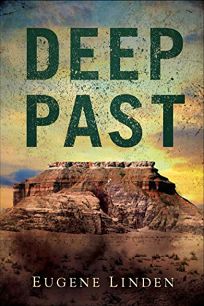 “By expedition standards, the Quonset was relatively snug, albeit stiflingly hot. The wind from the steppes howled outside as it had for three days, confining the archaeological team to their huts. It was late May, a time of year when temperatures were soaring and dust storms frequent as the winds picked up dirt and sand from the desert.
“By expedition standards, the Quonset was relatively snug, albeit stiflingly hot. The wind from the steppes howled outside as it had for three days, confining the archaeological team to their huts. It was late May, a time of year when temperatures were soaring and dust storms frequent as the winds picked up dirt and sand from the desert.
Still, only stray bits of grit blew in on those occasions when Claire had ventured out to the mess during the storm. The hot air in Claire’s hut was dry enough to mummify the plum Claire had left sitting in a bowl. She had pretty much stripped down as she sat at her plywood desk. She thought back on the whirlwind of events that in a few short weeks had brought her from a wellestablished life doing research in Florida to the searing heat of the Kazakh Steppes. It had all begun with a site visit from her funders, a visit that had gone well—too well, as it turned out.
She thought back to the day.
One of the sweetest moments was the shower demonstration. Claire smiled as she thought of baby Teddy.
“No, no, sweetie, you’re doing it all wrong.” Claire had walked over and pushed the lever. “See,” she said, looking into the soft brown eyes of the toddler, “you push the lever and the water comes out.” Claire had extended her arm to push a long handle so that she didn’t get doused by the shower. The baby cocked his head and looked at Claire expectantly but didn’t reach for the lever.
Claire sighed and turned behind her. “Come here, Mona. Why don’t you try.”
At the mention of her name, Mona, who had been standing placidly by, perked up and began lumbering forward.
Claire turned back to the baby. “OK, Teddy, Mommy’s going to show you how.” Then she nimbly and quickly stepped back to make way for the massive elephant. Mona walked under the twelve-foot-high showerhead in the enclosure and pushed the lever with her trunk. She gave a soft rumble of pleasure as the cool water offered relief from the hot Floridian sun. Then she stepped back and, with her trunk, gently nudged baby Teddy forward.
Teddy looked at Mona, glanced over at Claire, and then at the lever. Mona emitted another soft sound and put her trunk on the lever. Teddy tentatively extended his trunk and put it on the lever, too. Then Mona pushed the lever and water gushed down on the five-hundred-pound baby. Teddy jumped and gave an alarm call.
Claire laughed. She turned to two men and a woman standing behind protective mesh and said, “I know I shouldn’t say this, but I’d guess Mona was laughing, too.” That produced chuckles in the group, who were sweltering in business attire and mopping their brows with handkerchiefs.
Claire took pity. “OK, let’s get out of the sun, and we can talk about the real work going on here.”
Later, as she waved goodbye, Claire had skeptically replayed the site visit. Not knowing what it was really about, she’d thought it had gone well. On surprisingly short notice, the Delamain Foundation, which funded her work, had sent a group of two trustees and the executive director to visit. Claire knew where her bread was buttered, and she’d made sure to mix the hard science—experiments to determine what information elephants conveyed through ultrasonic communication, and how they perceived it—with the fun stuff.
They’d loved the fun stuff.
Apart from the shower demonstration, Claire had set up a pitching contest between one of the elephants, Flo, and one of the volunteers at the park who had previously played baseball in high school. Delamain was headquartered in Chicago, and so Claire had put a Chicago Cubs blanket on Flo’s back. The first two times she tried to put the blanket on, Flo shook it off. When Flo finally seemed to accept that Claire was determined to keep the blanket on her back, Claire patted Flo behind her huge ears before climbing down, saying, “You could have told me earlier that you’re really a Mets fan.”
Separated by a wire mesh, the elephant and a somewhat nervous volunteer had taken turns trying to throw softballs through a tire about forty feet away. Flo was rewarded with a treat for every successful throw, as well as lusty cheers from the Delamain delegation. While the delegation was delighted and dumbfounded when Flo won, Claire was not surprised. She knew that Flo’s favorite game was throwing things. Indeed, the reason Flo had ended up at the park—which had been set up to serve as a refuge for superannuated elephants—was that one of her games in her former life at an Ohio zoo had been to throw rocks at the monorail that brought tourists through the elephant enclosure. Her unnerving accuracy had properly unnerved the administrators. Once Flo had arrived, Claire had set up the tire as a way of redirecting Flo’s interest in throwing things in less destructive ways.
Following the Delamain group’s departure, Claire stopped by the trailer where the postdocs and grad students were collecting and analyzing data. She thanked them for taking the time to explain their work.
“Should I be polishing my résumé?” asked Thelma, an acoustic specialist from Arizona State.
Claire smiled. She had really promoted the team, telling the delegation that the project basically ran itself. She’d noticed that when she made that point, one of the trustees had caught the eye of the other and arched an eyebrow. What was that about? With the vantage of hindsight, Claire now realized that this should have put her on full alert. At the time, though, she had simply thought that the trustee was signaling that he’d been impressed. That’s what she told the staff.”
Readers can learn more about Eugene and his writing by visiting his website.
Deep Past is available at the following online retailers:
Amazon – B&N – Rosetta Books
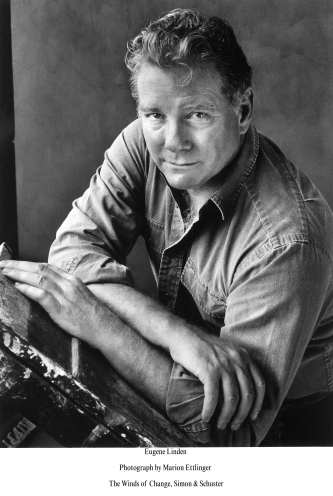 About Eugene Linden: Eugene is an award-winning journalist and author on science, nature, and the environment. Deep Past draws on his long career in non-fiction as the author of ten books, including his celebrated works on animal intelligence and climate change: Apes, Men, and Language, the New York Times “Notable Book” Silent Partners, and the bestselling The Parrot’s Lament. His book, Winds of Change, which explored the connection between climate change and the rise and fall of civilizations, was awarded the Grantham Prize Special Award of Merit. For many years, Linden wrote about nature and global environmental issues for TIME where he garnered several awards including the American Geophysical Union’s Walter Sullivan Award. He has also contributed to the New York Times, Foreign Affairs, and National Geographic, among many other publications.
About Eugene Linden: Eugene is an award-winning journalist and author on science, nature, and the environment. Deep Past draws on his long career in non-fiction as the author of ten books, including his celebrated works on animal intelligence and climate change: Apes, Men, and Language, the New York Times “Notable Book” Silent Partners, and the bestselling The Parrot’s Lament. His book, Winds of Change, which explored the connection between climate change and the rise and fall of civilizations, was awarded the Grantham Prize Special Award of Merit. For many years, Linden wrote about nature and global environmental issues for TIME where he garnered several awards including the American Geophysical Union’s Walter Sullivan Award. He has also contributed to the New York Times, Foreign Affairs, and National Geographic, among many other publications.

